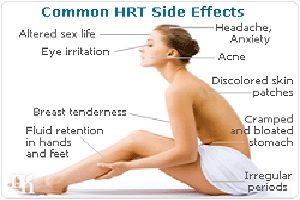
Hormone Therapy Side Effects Risk. Have you or a loved one undergone hormone therapy for prostate cancer and suffered a blood clot? New research has tied prostate cancer hormone therapy to a significant risk of dangerous blood clots in the veins, arteries and lungs. The defective drug lawyers at Parker Waichman LLP are currently investigating […]

Hormone Therapy Side Effects Risk. Have you or a loved one undergone hormone therapy for prostate cancer and suffered a blood clot? New research has tied prostate cancer hormone therapy to a significant risk of dangerous blood clots in the veins, arteries and lungs. The defective drug lawyers at Parker Waichman LLP are currently investigating the link between blood clots and hormone therapy in men with prostate cancer.
If you or a man you know suffered a blood clot while undergoing hormone therapy for prostate cancer, you may be entitled to compensation. Our defective drug lawyers are offering free lawsuit consultations to anyone who suffered a blood clot that may be related to prostate cancer hormone therapy, or their families. If you or someone you know developed a blood clot while undergoing prostate cancer hormone therapy, it is important that you contact our defective drug lawyers today to protect your legal rights.
Hormone therapy for prostate cancer, which is used to curb the production of tumor-fueling testosterone, was originally intended as a treatment for men with advanced forms of the disease that had spread to other parts of the body. Hormone therapy can also improve survival when given along with radiation therapy to men with “high-risk” prostate cancer that is likely to progress. In both these scenarios, the benefits of the therapy are very clear. However, doctors have increasingly been using hormonal therapy as a first-line treatment for men newly diagnosed with tumors that are still confined to the prostate, despite the fact that the benefits for those patients are not established.
In cases were the benefits are not clear, patients may be put at unnecessary risk for serious, life threatening blood clots, according to study published in the November 2011 issue of the journal, Cancer. After looking at data on more than 154,000 older men with prostate cancer, researchers found that those who received hormonal therapy had double the rate of blood clots in the veins, arteries or lungs.
Of the 58,000-plus men taking hormonal therapy, 15 percent developed a blood clot over roughly four years, versus seven percent of men who did not receive the therapy. Men who developed blood clots ended up in the hospital about one-quarter of the time. Even when the researchers accounted for factors, such as old age and poor health, that could explain the higher rate of blood clots, men on hormonal therapy still had a 56 percent greater chance of developing a blood clot. What’s more, the risk grew the longer a man was on hormone treatment.
The study authors pointed out that the risk of blood clots associated with prostate cancer hormone therapy was not trivial, and needs to be balanced against the benefits.
The personal injury attorneys at Parker Waichman LLP offer free, no-obligation case evaluations. For more information, fill out our online contact form or call 1-800-YOURLAWYER (1-800-968-7529).


